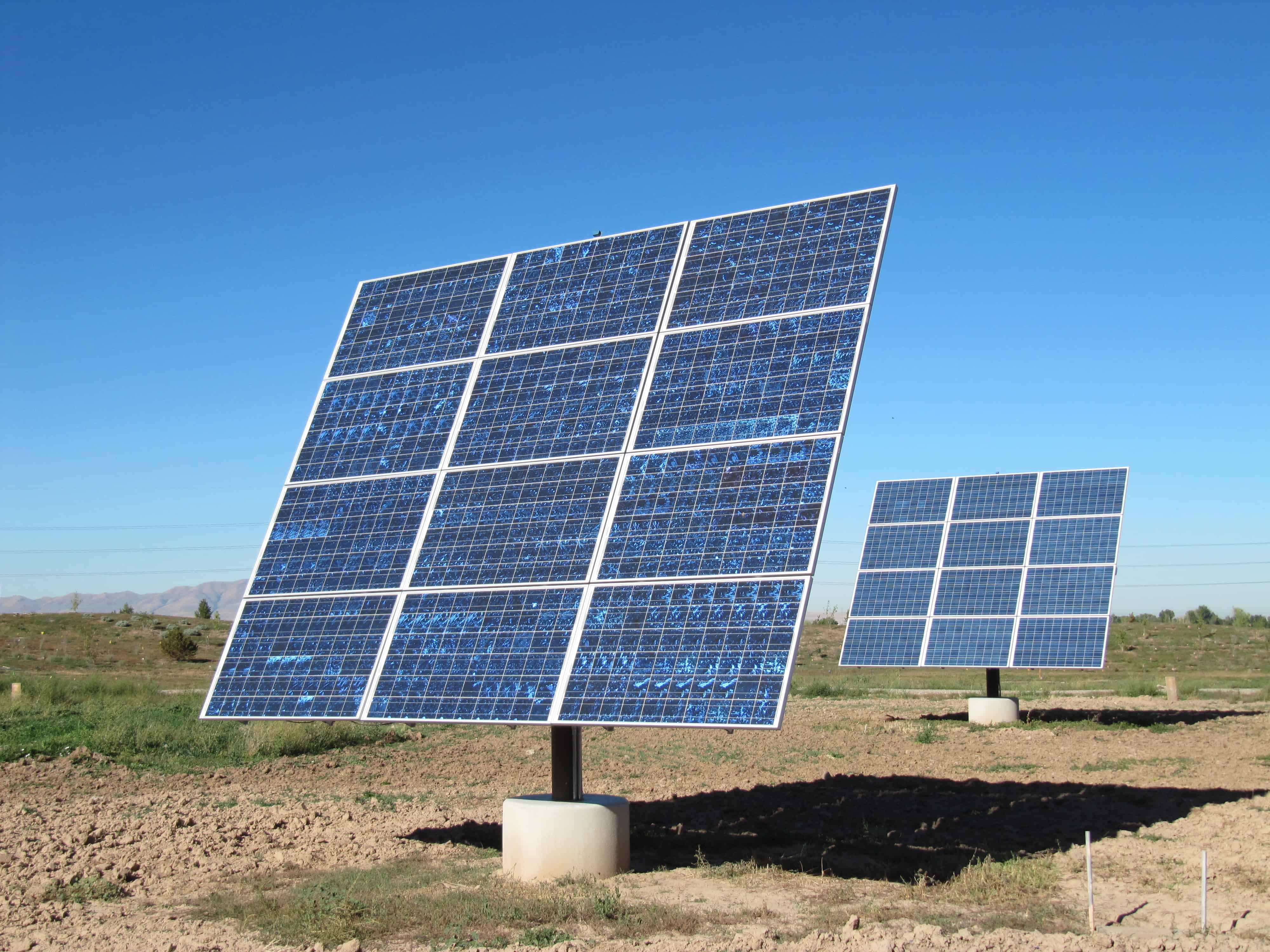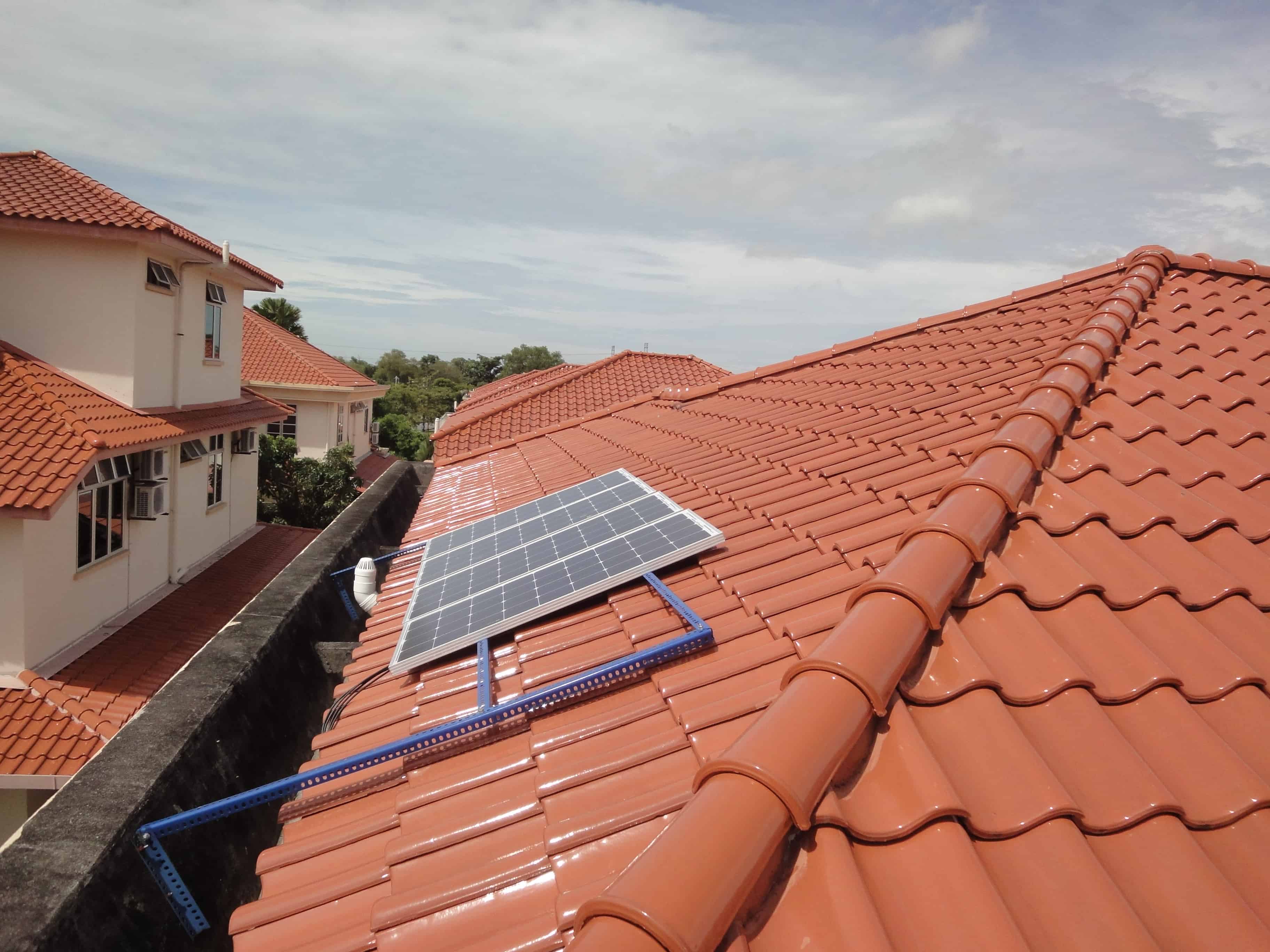Why Sacramento’s Wild Weather Isn’t Damaging Your Solar Panels
![]() You hear the weatherman predict a real doozy of a storm headed for Sacramento. You’ve battened down the hatches, so to speak—you and your family are safe inside. You also did some due diligence and made sure that your ground-mounted solar panels are secured. But those winds are picking up, and you can already hear the pings of hail on your windows. So how can your solar panels possibly handle that kind of weather? Fortunately, most solar panels have been designed to withstand even heavy winter weather elements.
You hear the weatherman predict a real doozy of a storm headed for Sacramento. You’ve battened down the hatches, so to speak—you and your family are safe inside. You also did some due diligence and made sure that your ground-mounted solar panels are secured. But those winds are picking up, and you can already hear the pings of hail on your windows. So how can your solar panels possibly handle that kind of weather? Fortunately, most solar panels have been designed to withstand even heavy winter weather elements.
Photovoltaics that are sold here in the U.S. have to be UL tested and certified for durability, meaning they’re tested in all sorts of weather conditions. Solar panels have internal parts constructed of fragile crystalline cells, but the outer surface of each panel is designed with either a laminate, glass, or acrylic casing that can withstand winds at speeds of up to 260 mph. But, for your peace of mind, it’s useful to know all the potential effects that different types of weather can have on your solar panel array.
How Weather Conditions Affect Solar Panels
Bad weather can be scary and inconvenient, especially if there’s the potential for damage to your home. Certified panels should withstand most weather conditions, but there’s always the possibility of some damage. Most tests are designed primarily to ensure the safety of individuals so that if the equipment is damaged, it doesn’t shatter or break in a way that could hurt somebody—functionality under severe conditions is often a secondary concern. The weather conditions that can affect your panels are:
- Heavy rain: Heavy rains may come with clouds, but the rain itself will not damage solar panels. Your solar designer will also take into consideration how precipitation may collect near or on your solar array, so if it’s really a deluge out there, the water should run off easily, not sit and collect
- High winds: Solar arrays installed on roofs of East Coast homes held up surprisingly well back in 2012 when Hurricane Sandy came through. That bodes well for us on the West Coast as well, but it’s important to consult your installer about the positioning of panels. If they’re installed at vertical angles, they may experience greater force from high winds than panels installed flat to a surface. That’s why it’s important to hire an installer familiar with the geographical location of your home and local climate—so they can angle photovoltaics in the correct direction, and at an angle suitable to withstand typical wind speeds.

Ground-mounted solar panels | Photo via flick’r user ricketyus
- Large hail: Solar panels with UL certification are tested to withstand hail by using one-inch steel balls at terminal velocities, or as fast as they can go when in freefall. But this doesn’t guarantee that they’re safe from damage—hail can come in all shapes, sizes, and at different speeds. Golf ball-sized hail at hurricane speeds, for example, has the potential to cause some damage, but that type of weather is pretty unusual in our part of the country. Chances are, your panels will be unaffected by a typical Sacramento hailstorm.
- Lightning: There is no way to properly failsafe any property from lightning, and this includes solar panels. Lightning is unpredictable, and, therefore, hard to recreate. And lightning doesn’t have to directly strike your solar array to cause damage—it can strike anywhere down the wiring and cause a surge, possibly destroying equipment. But, if your solar panels are properly grounded, or electrically connected to the ground as required by the National Electric Code, you can rest easy knowing they’re safe from the off-chance of a lightning strike.
Protecting Ground-Mounted Solar Panels from Harsh Weather
That storm is brewing and quickly moving in. How are you going to protect your photovoltaics on the freestanding ground-mount in your yard? Well, as we’ve already covered, your panels are pretty hardy and can withstand some pretty crazy conditions. But if you have a freestanding structure with solar panels mounted on top, it wouldn’t hurt to make sure it is anchored securely to the ground.
Verify the risk factor in your area for extreme weather, and weigh that against the cost of additional weatherproofing, such as extra mounting equipment. Of course, you want to make sure that your panels are UL-rated and meet all local code requirements. After that, you can depend on their durable construction to handle most, if not all, of that crazy weather.
How Roof-Mounted Solar Panels Withstand Extreme Weather

Roof-mounted solar panels | Photo via flick’r user julian
If your solar panels are mounted to your roof, you probably have less to worry about in terms of weatherproofing. Often solar panels are roof-mounted two different ways: flat to the surface or angled. Flat solar panels that are UL-rated shouldn’t experience any damage from rain, hail, or heavy winds, but you might confirm that there is plenty of slope on your roof for drainage in case of heavy rains or snow.
Solar panels that are angled can also have additional mounting installed if you live in an area that experiences high winds. But, if they were installed by a reputable solar installer that’s familiar with the local climate, they have likely already been positioned in the optimal spot not only for solar collection, but also to protect from the force of heavy winds. And, should lightning actually strike, or a massive hail storm suddenly rains down on your panels, you’re likely covered by your homeowner’s insurance.
I don’t think the meteorologists know if we’re done with all this crazy weather we’ve been having in Sacramento lately, but at least you can rest assured that your certified solar panels are safe from the bad weather we’ve been hit with this fall. And, if you haven’t yet joined the green and clean energy craze sweeping Sacramento, now is the ideal time to call your local, trusted solar panel installer—they can help you navigate through the rebate and incentive programs available in Northern California before the end of the tax year.
If you have questions, concerns, or are just plain curious about how durable solar panels would be on your home, give the local solar experts at Bell Brothers a call today.

